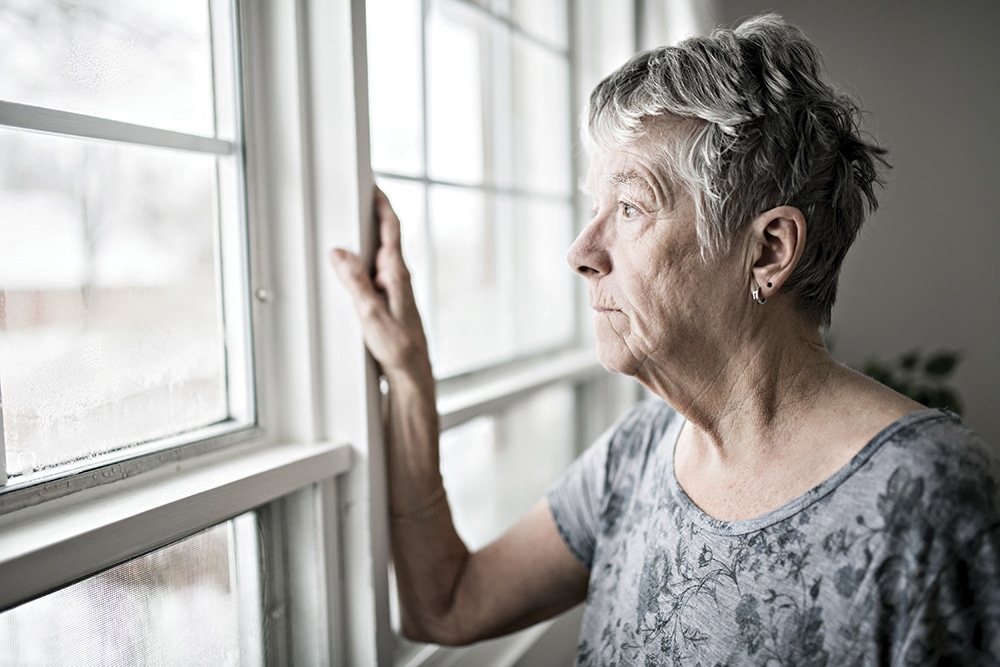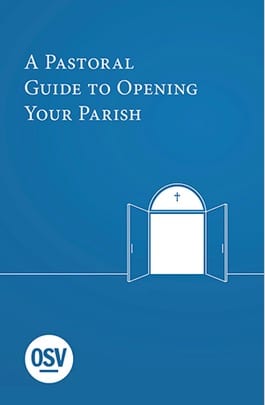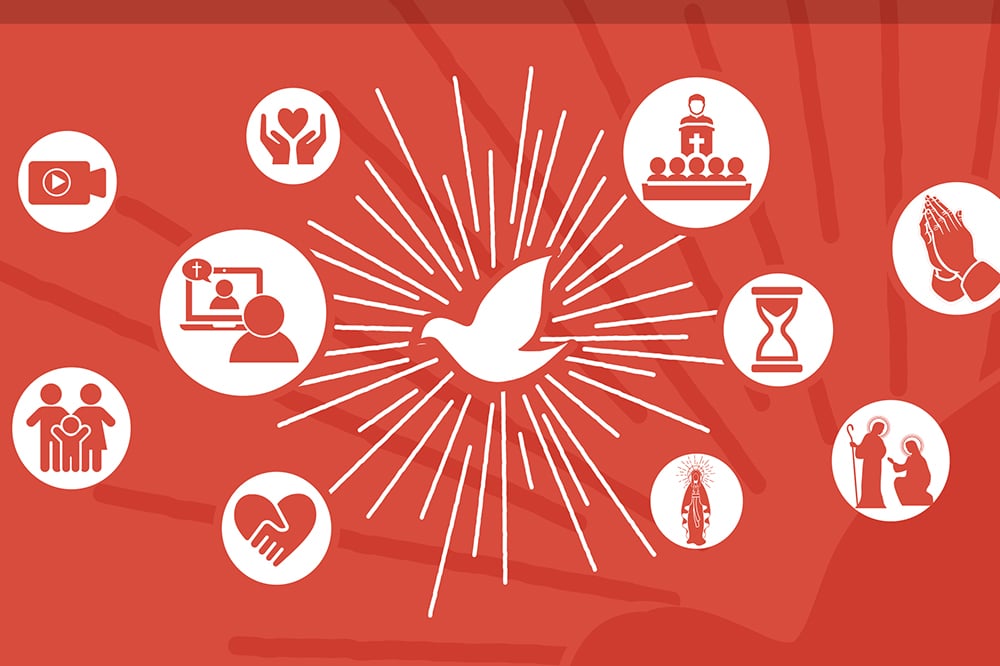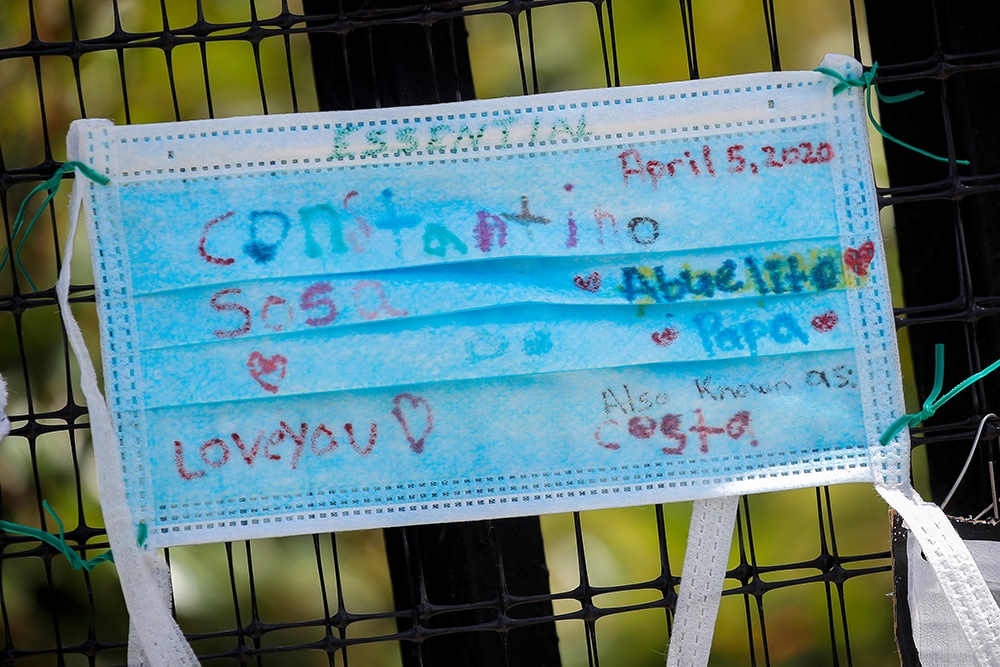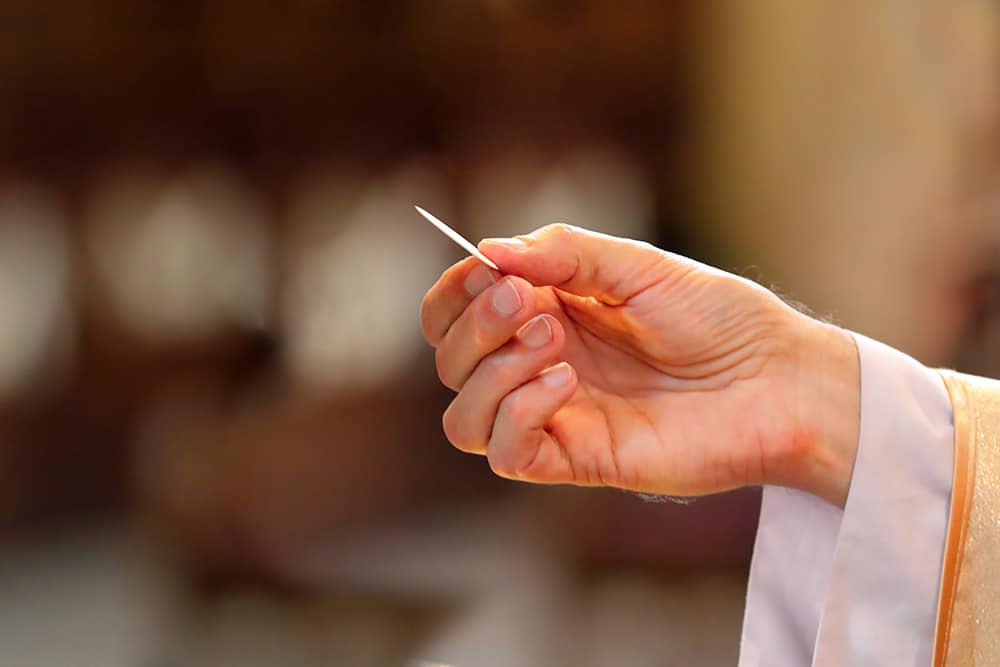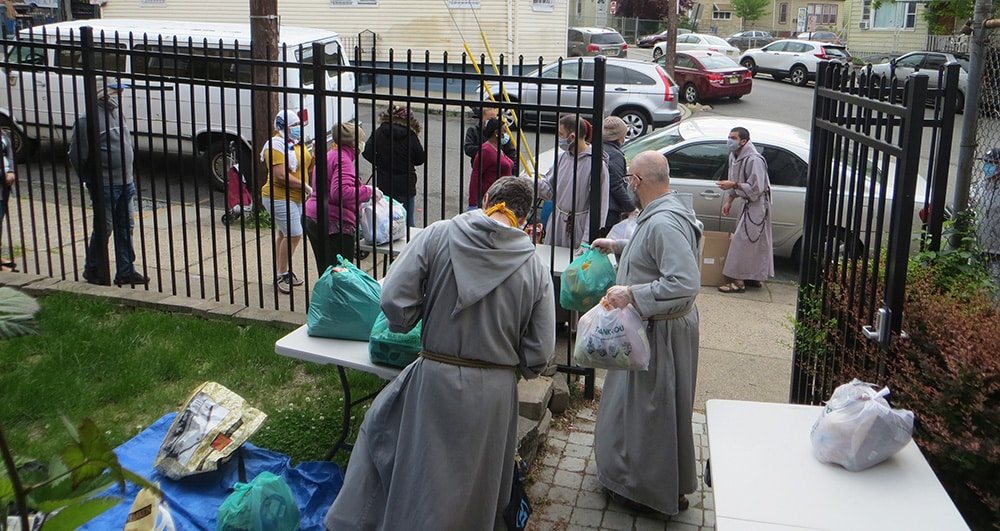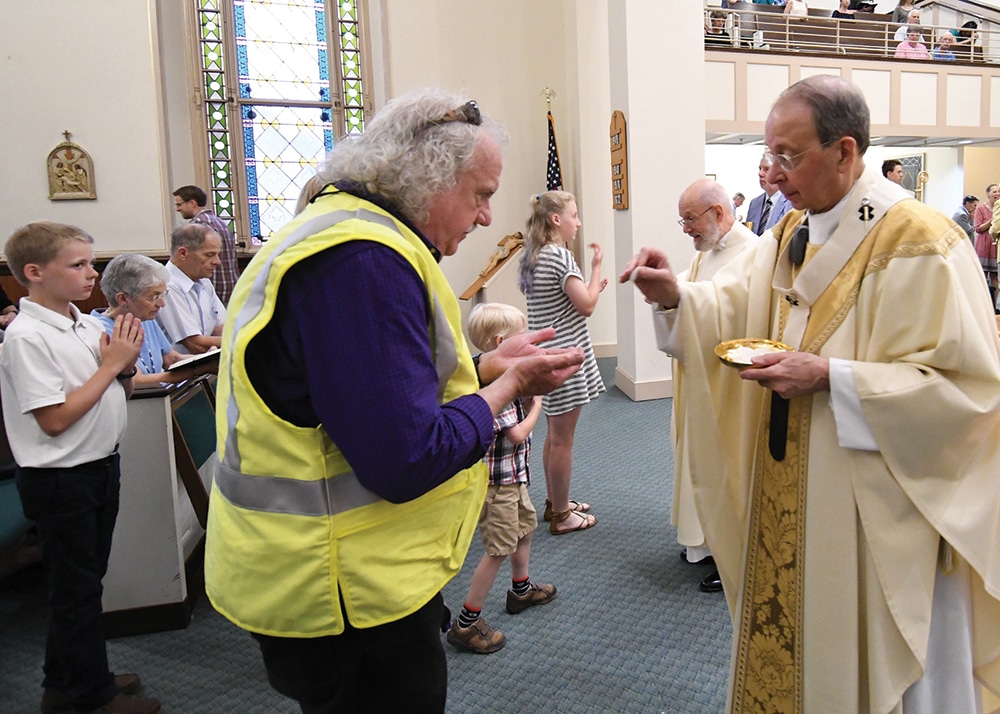As counties and states nationwide begin easing restrictions and moving into new phases of COVID-19 response, dioceses are examining lessons learned amidst the pandemic. While there is certainly no one-size-fits-all set of best practices, parishes and Catholic mental health practitioners are engaged in an ongoing discussion on the pastoral and emotional well-being of their flocks, especially those who find themselves unable to return to the comfort of their pews with their faith communities.
For many priests, these lessons have included personal ones. Father Joshua J. Whitfield serves as pastor at St. Rita Catholic Church in Dallas, Texas. The priest, who authored “The Crisis of Bad Preaching: Redeeming the Heart and Way of the Catholic Preacher,” called the pandemic “a shock-treatment-level reminder that the Church is not an aggregate of individuals but rather a community of persons in relationship.”
Read more from our special section ‘Moving Forward in Faith’ here
“Separated from each other, the painful experience of absence has preached to me truths I hope never to forget,” Father Whitfield said. “I keep thinking of Jesus in the Gospels, how not just individuals but great multitudes drew around him, physically gathering around him in this communion he called a kingdom. It’s driven me to pray for my people like I hadn’t before, to seek them out, to be as present to them as possible. But I do worry about the lonely, the isolated, those who may be falling through the cracks. I pray my parish may become like Jesus and his multitudes again, gathering in love.”
The Church and mental health
Dr. Michael DiPaolo, a clinical psychologist and certified Imago Relationship therapist, points to the fact that mental health issues are hidden wounds which unfortunately sometimes carry a greater stigma than physical conditions. Persons who are already feeling disconnected or disillusioned may be suffering even more in the midst of physical separation from their parishes. But a resumption of in-person Masses will not be an immediate solution for all of their problems.
“It’s a further reminder that the Church is not the building, it is the people. Echoing Pope Francis, we must see our individual parish as a ‘field hospital,’ going ‘out to the margins’ to meet the people,” DiPaolo said. “More than ever, it challenges us to come out of our comfort zones to engage with those who are disconnected. I hope we remember that when we move beyond this pandemic those people will still be out there, needing that same attention.”
| Booklet |
|---|
|
This article is included in “A Pastoral Guide to Opening Your Parish,” a new booklet from OSV. As our parishes begin to reopen following local guidelines, the Catholic faithful have many questions and legitimate concerns about what life will look like post-pandemic, and we hope this booklet helps give parish leaders a playbook to welcome back parishioners following the shutdown. For more information, or to order, click here.
|
As the founder of Catholic in Recovery, Scott Weeman has witnessed firsthand the impact of the pandemic and resulting financial strain on those struggling with addiction.
“Catholic in Recovery has been providing virtual meetings for people with a variety of addictions, compulsions and unhealthy attachments while also providing recovering meetings for family members of an addict,” Weeman said. “We have seen people begin and maintain their recovery since lockdowns have gone into place. People from all corners of the world are now able to attend Catholic in Recovery meetings, which combine 12-step spirituality with the sacramental life of the Catholic Church. Many awakenings have been taking place as individuals and family members emerge from the darkness of isolation into a fellowship of believers who can deliver valuable hope.”
Tommy Tighe, a marriage and family therapist, points to the essential role that parishes should play as referral sources for the faithful.
“We usually don’t know what to do, where to go for help or even how to take our first steps forward to healing and wellness,” Tighe. “That’s why it’s so vital for our parishes to be hubs of information, not only for where we go when we have mental health treatment needs, but also for providing opportunities for all of us to learn a little about emotional and spiritual self-care.”
Others find themselves consulting with many who continue to struggle with a sense of isolation. “Many priests have offered online Masses which have been greatly appreciated,” said Allison Ricciardi, LMHC, founder and president of CatholicTherapists.com. “But going that extra mile in communication makes a big difference, whether that be a regular presence on social media and regular updates to parish and diocesan websites or offering other online devotions, even if there doesn’t seem to be anything new to report. It’s important to help parishioners understand the course of action taken and offer hope that things will indeed change.”
Parishes respond
Examples of this type of outreach are playing out around the country. At St. Brigid’s Parish in San Diego, Weeman serves with a group making outreach calls to every registered parishioner.
“As it turns out, people really appreciate hearing from their pastor or representatives from their parish, especially when the only agenda is to connect, pray and check in on the wellness of the one receiving the call,” Weeman said.
The parish has also assembled a team of young adults to be of service to the seniors and homebound in their community who are high-risk. He calls the effort “a really unique opportunity to connect multi-generational groups within communities who may otherwise not see or speak to each other much, even if it’s just a simple phone call or dropping off food at the door.”
In addition, the power of prayer cannot be stressed enough in these circumstances, said Tighe. For example, the Prayer of the Faithful offered during livestreaming Mass can and should be written to include the challenges faced by those who may be struggling with isolation or loneliness. But he also challenges parishes to new methods.
“We have to work to find creative ways to be with those who can’t be with us in a physical sense,” Tighe said “We’ve seen this done well in so many different ways during this pandemic, from social distancing visits to Eucharist processions that drive by the homes of parishioners, to individual phone calls from the pastor or parish members.”
Allison Ricciardi calls such tangible signs essential. “Seeing some priests process through their parish neighborhoods with the Eucharist and blessing houses from the curb has been especially welcome and powerful,” she said. “People need to see these demonstrations of faith from their priests and pastors to whom they look for spiritual leadership.”
Another example is St. Monica’s Catholic Community in Santa Monica, which established a COVID-19 response ministry to provide care to those who are struggling or need to quarantine because of health or age reasons. Services include personal outreach, grocery shopping or other essential actions. This ministry compliments the growing online congregation watching the parish’s online masses and reminds parishioners that they are called to be the hands and feet of Jesus Christ.
Spiritual treasures know no boundaries
Although St. Rita’s has established programs to conduct outreach to those isolated during this time and he is heartened by charitable efforts, such as the city of Dallas’ fully stocked food banks. Father Whitfield sees the Church’s most important care for the faithful as a spiritual mission. While acknowledging the power and gift of livestreamed Masses, the pastor feels it is essential for the faithful to be reminded clearly and repeatedly that the vast spiritual treasures of the Church are available to all the faith, no matter where they are physically.
“I think we need to remind and perhaps teach our people afresh how to rely on scripture, the Rosary, the Divine Mercy Chaplet, lectio divina and so many other elements of our spiritual tradition,” Father Whitfield said. “That’s because these treasures of prayer are like blood pulsing through the body from the heart of the Eucharistic altar — which is, of course, still beating in every parish every time a priest says Mass, doors locked or not! We need to remind and empower our people to realize and rely on the infinite spiritual strength of the Church, strength available to every believer.”
Lisa Hendey writes from California.

